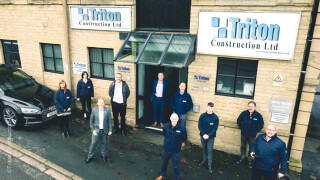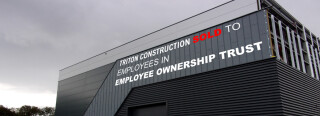The Coalition government of 2010-15 might not be remembered for much, beyond its austerity measures. But it did manage to pull off one or two notably radical reforms. Legalisation of same-sex marriage was one of them. Another, with which fewer people may be familiar, was the abolition of capital gains tax for shareholders selling their business to their employees. This may sound prosaic but its impact could become increasingly significant and widely felt.
The then business secretary Vince Cable commissioned a review of business structures from a solicitor-cum-tax adviser, Graeme Nuttall. That 2012 report, Sharing Success: The Nuttall Review of Employee Ownership, made the case that businesses owned by their employees performed better than those under any other sort of ownership model.
The government was persuaded and introduced tax incentives to encourage anyone considering selling their business to sell not to venture capitalists, nor seek a stock market flotation or effect a management buyout, but to sell their business instead to the employees.
What pinko socialist nonsense is this, I hear you cry! Hold on and hear me out.
This article was first published in the Dec/Jan 2021 issue of The Construction Index magazine. Sign up online.
If you own a trading company, you can now sell some, or all, of the shares to an Employee Ownership Trust (EOT) for full market value – which has to be independently audited – tax free.
The tax reforms did not prompt a sudden rush of companies being taken over by their employees, probably for two reasons: firstly, businesses do not change hands all that often; secondly, it represented a jump into the unknown for most people.
As Nuttall himself wrote in his report: “Employee ownership is insufficiently understood. There are some businesses, such as John Lewis Partnership, which are well known for their employee ownership model. But employee ownership does not have instant recognition in contrast to, say, franchising or operating as a charity. Too few owners or employees know about the proven benefits of employee ownership to even be able to consider whether it is something they want to adopt.
“When employee ownership is understood a little better, it is undermined by misperceptions and confused terminology. It can be confused with related, but different, concepts such as social enterprise, not for profit organisations and worker co-operatives. Whilst employee-owned companies can take on these characteristics, this review considers that employee ownership is best understood as a business model in its own right, and can be just as effective in achieving growth and profit maximisation as other models.”
However, in the seven years since the reform was introduced, what started as a mere trickle could soon become a steadier stream of businesses becoming employee-owned across the UK.
Even before the tax changes, there were already a number of UK businesses owned by their employees, including the consulting engineers Mott MacDonald, Arup and Black & Veatch and the surveyor Rider Levett Bucknall UK.

Over the past 12 months we have been able to add to the list the names of London-based specialist contractor McGee Group and north of England builder Triton Construction.
Announcing their move to employee ownership in May 2020, the McGee brothers – Michael, Brian and John, who inherited the business from their father – glossed over the tax benefits accruing to them and made it sound merely an act of benevolence. Chairman Brian McGee said: “It would have been relatively easy for us to sell McGee Group to a third party, but we did not want to do that. Michael, John and I, similar to our father, have always recognised the contribution of our employees, which is why the move to employee ownership in many ways, was the obvious next phase of the McGee journey.”
“For us, it’s a move designed to secure the future of the business, continue the legacy that our father started in 1959 and reward the people who have made the business the success it is today – its employees,” he said.
A fuller explanation of what employee ownership means, and how it works, was revealed by Triton Construction managing director Paul Clarkson in an interview with the Re:Construction podcast on 21st October 2020, just a few weeks after Triton joined the ranks of the employee-owned.
Triton Construction is, in most ways, an unexceptional, mid-sized regional building contractor with approximately 55 employees in offices in Liversedge and Warrington. It takes on jobs in the £500,000 to £10m range for clients ranging from Premier Inn to local authorities. Its turnover for the year ending 31st March 2020 was £32.4m (2019: £55.6m). Pre-tax profit was £1.3m (2019: £2.6m).
Despite last year’s slow-down, Triton Construction has no formal debt or borrowings and maintains positive bank balances and expects to maintain turnover at around £35m to £40m for fiscal 2021. The target is to reach £100m turnover within the next few years.
The company was founded in 2005 by Mike Parkinson who, Clarkson says, right from day one had potential exit strategies in mind. Even though he was only 40 when set the business up, he never intended to be one of those people still there at the age of 70.
The first stage of his exit was a partial management buyout in 2016. The directors were enrolled in an enterprise management incentive (EMI), a share option scheme designed to help companies to attract and retain key staff by rewarding them with equity participation in the business. This transferred 50% ownership of the company to the directors under the scheme.
Clarkson joined Triton in 2019. He had previously been managing director of Scunthorpe-based Britcon and years before had worked with Parkinson at Totty Construction before Totty became part of ISG. Parkinson brought Clarkson into Triton as managing director to enable himself to take a step back. As a director, Clarkson also partook in the EMI scheme.
Clarkson, who remains managing director after the employee takeover, describes the EMI as part one of a two-part process; the EOT represents part two, handing the business to the employees.
EOT ownership is not the same as employee share ownership. Employees do not have share certificates that they can sell when they want or take with them if they leave the business. It is technically the trust that owns the business, for the benefit of the employees. But any money that the business makes either gets reinvested into the business or is shared out among employees.

It is tempting to see a boss who hands his company to his employees as some kind of philanthropist. Tempting, but wrong. Mike Parkinson has managed to sell his company in a tax-efficient manner that may net him a bigger profit than any other route. The business has not been ‘given’ to the employees; it has been sold to a trust.
“Clearly it’s not completely altruistic,” Clarkson says. “Things never are, are they?”

He explains: “We had the choice of either a trade sale or a standard management buyout. A trade sale means the business changes, the staff get disturbed, nothing stays the same. A management buyout [MBO] means you keep the same management team but the management team has to borrow a load of money and put the company into debt to pay out the existing shareholders. That all causes problems.”
Of course, an EOT could be faced with huge debts from day one, just like an MBO, but Triton has avoided that.
“There are two ways of doing it,” Clarkson says. “The business could have borrowed money and paid out to the existing shareholders at day one and left the employees, as the trust, with a big debt. Or, what we decided to do, was do it over time. So as we accrued profits the existing shareholders were paid out of those profits over a number of years.”
Parkinson was not the sole shareholder of Triton. Fellow director Steve Bolton has taken the opportunity to retire as part of the EOT transaction and two of the original non-executive directors have exited. They will all be paid for their shares only in due course, when the business can afford to pay them. That is the deal.

“What we’ve done is said that the business must always maintain a net value, so that if the profits are not there to be paid out, then they aren’t paid out,” Clarkson explains. “The asset value of the business is set at a level and we can’t pay out dividends, if you want to call them dividends – or loan notes as they are actually described – we cannot pay them out unless we maintain the asset base.”
In other words, the departing shareholders have a vested interest in the future success of the business and so want to leave it in the best possible shape with the best chance of future success.
At Triton, until the shareholders’ loan notes are paid off, just 5% of annual profits are set aside to be distributed as employee bonuses. “As long we retain the minimum asset value, the rest can be returned to the [former] shareholders,” Clarkson says.
Until those loan notes are paid off, the employees cannot increase their bonus payments above the 5% that it’s capped at.
According to Triton’s calculations, it should take about seven years to pay off the loan notes, after which time the employees might start to do rather better.
“We have put into the articles of the trust that when the loan notes are paid off the employees can take 50% of the profits as bonus, of which each would get £3,600 tax free [as per Treasury rules] and the rest would be taxed at whatever the going rates were. When an employee leaves they relinquish any entitlements. It’s not like they have shares. The shares are held in trust and it’s only for the benefit of present employees,” explains Clarkson.
It is, therefore, an incentive to keep good employees with the company.
This article was first published in the Dec/Jan 2021 issue of The Construction Index magazine. Sign up online.
The bonus system is structured according to salary and length of service. “There’s a calculation that goes into that to decide what the bonus is,” he says.
For directors under the EMI, the incentive works a little differently. They do get a shareholding in the business, but under the statute of the business no director can own more than 5%; and 25% is set aside in EMIs that can be taken in three years.
At Triton, Clarkson says, the business is now run perhaps more like a public limited company than the privately-owned business that it so recently was. That is because, as managing director, he is now answerable to the trust and the employees/shareholders.
Triton’s EOT has three trustees – Mike Parkinson is chair initially and the other two are employees.
Clarkson explains: “A couple of our employees stepped up and put their hands up to be trustees so Mike is not in total control. He is in effect outvoted by the two employees.” The employees are represented by a staff committee to which the trust reports.
The committee has a number of powers, but little influence over the day-to-day running of the business, explains Clarkson. “They can make recommendations, try and advise the board on what might be good ideas – on site or in the office – or what might be beneficial from a health and safety perspective, things like that. Those recommendations are passed to the trustees who take them to the board. The board don’t have to act on these. Day-to-day the board runs the business as it always has done.”
Giving employees total control of every decision would be “like managing rats in a sack,” says Clarkson. “You’ve got to have some clear direction to the business. The committee have a number of powers but they are limited.”
Clarkson will be preparing quarterly reports to the trustees and the trustees will be sharing those with the staff committee. “The committee can call me to explain why my business plan hasn’t worked out how I said it would or why it’s going better. They can’t instruct me to do anything but they can call me to account and ask me to explain what’s going on and why. So I expect to have quite a bit more interaction with the committee.”
However, the staff committee does have the ultimate power to vote off the trustees, including the chairman, and vote in new trustees. Clarkson says directors can be held to account in this way but are unlikely to find themselves removed unless caught with their hands in the till.
Although the term ‘employee ownership’ implies a degree of proprietorial oversight, what the employees get out of the arrangement is not really an opportunity to control the business. Instead, they get an opportunity to share directly in the fruits of their labour and be part of a team with the clearest possible vested interest in harmony and pulling together.
As Clarkson explains: “Until we’ve paid off the former shareholders it’s not going to be a golden pot for anybody really but it could be [eventually] and that’s the incentive for everybody to strive together in the same direction.”

This article was first published in the Dec/Jan 2021 issue of The Construction Index magazine. Sign up online.
Got a story? Email news@theconstructionindex.co.uk


